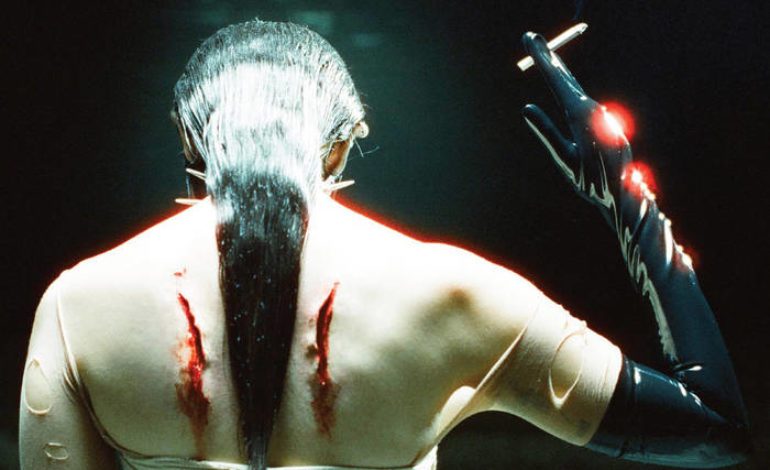

An epic poem for the modern day
Let’s face it, most concept albums are bloated, overly theatrical messes that fail to utilize the emotional power of music. However, a well-done concept album transcends both music and storytelling to create something that enlightens and enthralls more wholly than almost any piece of media. King Woman’s Celestial Blues cleanly slots into the latter category.
One of the many projects of metal savant Kristina Esfandiari, King Woman was originally created in 2015 to explore Esfandiari’s experiences of attempting to leave her Christian upbringing. Six years later, these themes remain front and center as Esfandiari calls upon John Milton’s Paradise Lost, the apocryphal tale of Lucifer’s literal fall from grace, to serve as a stand-in for her own experiences leaving religion behind. While this isn’t stated explicitly, the history of the King Woman project and the general themes of Paradise Lost, interpreted through a modern lens, view Lucifer’s rebellion through a sympathetic lens. The multifaceted character serves as an avatar for doubtful Christians and all their hopes and hubris.
Like nearly all great concept albums, there’s more at play than just the story. While Lucifer’s fall features heavily throughout the album, it’s primarily noticeable on “Morning Star” and “Paradise Lost.” Other religious themes crop up in “Golgotha,” which is experienced from the perspective of an abandoned and suffering Lucifer as he watches Christ suffer an eerily similar fate. The themes of abandonment and sacrifice are also found in “Boghz,” where the subject of the song appears to be being used for lust, abandoned by their partner. It’s particularly apparent in the closing lines of the song: “Here’s what I’m gonna do/ Get down on my hands and knees for you/ You know this is a lie.” Wherever you look, the album presents another fully developed theme to pick and prod at during your time in its thrall.
It would be one thing if the album were only thematically rich, but it’s far more than that. The musical elements of the LP are handled with great care and even greater ferocity. Guitars hit with the force of sledgehammers, and the drums thud their percussive gunshots across each track in increasing propulsive ways. It all adds up to a thrilling, emotional crescendo, particularly on “Morning Star,” as Esfandiari repeats the refrain “Lucifer/ Falling from the heights” over and over while the drums spiral around the vocals. The combination is both thrilling and frisson-inducing, perfectly encapsulating the melancholy of loss with the panic-stricken adrenaline rush of a deadly fall.
Esfandiari saves what might be the best moment of the record. While there are no weak moments on this exceptional LP, “Paradise Lost” stands out as one of its strongest. It wraps the story back around to the exile of humanity from the Garden of Eden. The album again draws implied comparisons between Lucifer and another biblical character, this time Eve. The song is soft and mournful, a startling change of pace given the heft of the other songs on the album. It throws anger directly at God, who “commanded that she hurts” while Eve “woke up in the dust/ stunned and abandoned.” The album’s most searing lyrics, “We have been thrown from Eden/ I need to find the maker/ You’re gonna blame it on me/ It’s just the saddest story,” also implicates Adam, who ran from his culpability in the crime, pinning everything on Eve, and costing her paradise.
At every possible turn, Celestial Blues thrills and excites in new and innovative ways. With pitch-perfect instrumental sections that could shake a spider from its web and soul-rending vocal performances, Esfandiari tells an agonizing tale of love, loss, lust and sacrifice. It’s nothing less than an essential record, not only for the year but perhaps for this still blossoming decade.
